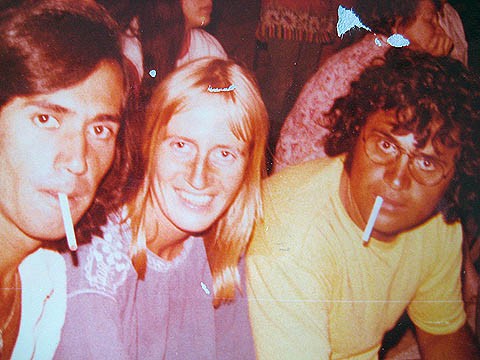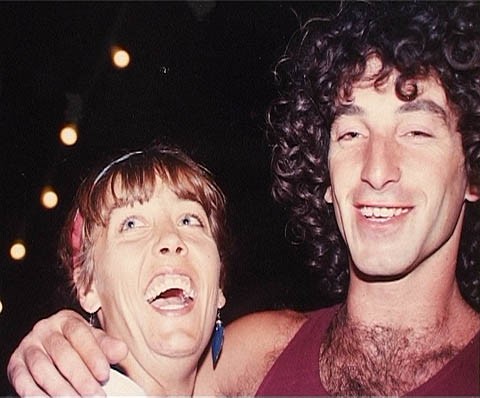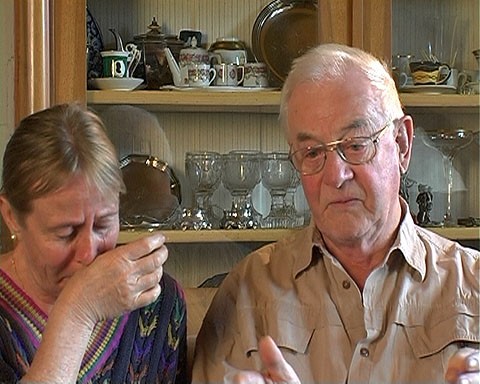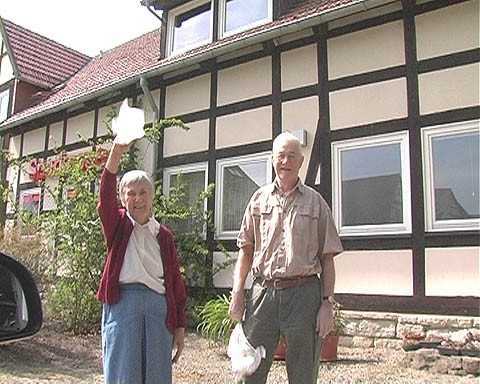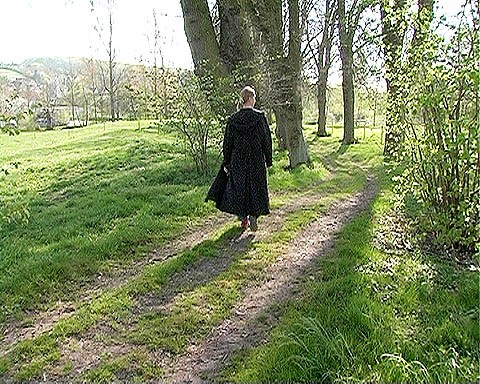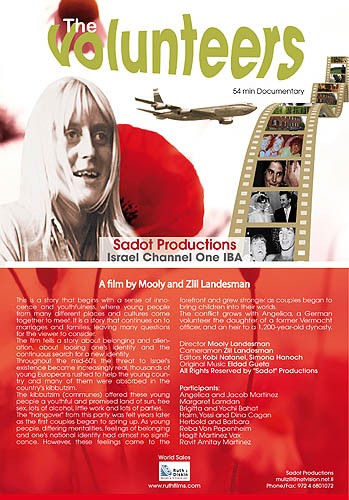The story of youthful exuberance and the search for personal identity come together in this appealing new documentary. In the 1960’s Israel was a young country under siege. The idealism of a new country and the romanticism of the kibbutz propelled many non-Jews to travel to Israel to work on kibbutzim. “The Volunteers” follows a group of European volunteers and their Israeli partners whose stories raise questions about the complexity of personal and national identity. The Volunteers” looks at the innocence of youth and some of the realities that emerge from couples who come from different backgrounds and met on kibbutz during this singular time. For example, one of the volunteers, Angelica, is a German daughter of a former Vermacht Soldier who carries the weight of her past while trying to raise her own family in modern day Israel. “The Volunteers” raises questions while providing a window into some of the intricacies of self expression.
Synopsis
The story of youthful exuberance and the search for personal identity come together in this appealing new documentary. In the 1960’s Israel was a young country under siege. The idealism of a new country and the romanticism of the kibbutz propelled many non-Jews to travel to Israel to work on kibbutzim. “The Volunteers” follows a group of European volunteers and their Israeli partners whose stories raise questions about the complexity of personal and national identity. The Volunteers” looks at the innocence of youth and some of the realities that emerge from couples who come from different backgrounds and met on kibbutz during...
Press & Links:
"...a particularly poignant and insightful documentary.."
Amy Kronish
For the entire review by Amy Kronish, check: http://www.israelfilm.blogspot.com/Mooly and Zlil Landesman's fine film, "The Volunteers" resisted the strong temptation to deal in nostalgia, to reconstruct the days of past innocence, lost forever and adopted a different approach, i.e. Israel as a country of emigrants from the viewpoint of those few non-Jewish foreigners who found themselves a spouse and decided to plant their roots here in Israel. Actually, through sort of "an exotic-like" viewpoint of the "blond Danish/German/Swedish girls" who found the "dark, muscular, silent kibbutz boys", "The Volunteers" takes a nearly exacting look at who is an Israeli.
Assaf Snyder- Maariv
Mooly and Zlil Landesman created a fascinating documentary that deals with only a small portion of the same 'days of milk and honey' back then in the 1960's. Most of the film is dedicated to the stark awakening that comes after falling in love, the "hangover" that comes after all the partying has ended.
One of the more shocking segments of the film is that that documents the meeting between Angelica Martinez with her father Herrbold Raba Von Pepenheim, at the family's estate in Belibnau, Germany.
Karni Am-Ed- KibbutzThe opening scene of The Volunteers takes you back to the days when the kibbutz was one of the 'coolest' places on earth, so much so that it was possible to make a nostalgic, funky and joyful film. However the film's producers went in a somewhat more interesting direction and concentrated on the long term results of all the 'fun' that was created by the couples made by the tanned kibbutzniks and their blond volunteers.
Yaron Ten Brink- Yediot AchronotThose were the days… we were considered one of the world's greatest wonders that stimulated young people from around the world to leave their parent's homes and checkout the Zionist state, especially the kibbutz. The lovely film by Muli and Zlil Landesman takes the viewers to some lesser-known episodes of that experience.
Nir Kipnis- Globes
Who Wants to Volunteer?
The documentary film "The Volunteers" which will be broadcast this evening raises interesting questions about identity and the changes that have occurred in Israeli society.
"The Volunteers", Muli and Tzlil Landsman's new documentary is actually about female volunteers. So what else is new? Let's face it –when you talk about volunteers on kibbutz – you are talking about the women who come to volunteer. And preferably blond European women. And the women in this film answer to those criteria quite well. They came to kibbutz during the 1960-80's and each one reflects her own generation, her own war. When the Six Day War breaks out, Margaret Lamdan from Germany feels that she has to be in Israel. And so Angela, also from Germany, feels totally connected to Israel. But Brigitta, from Denmark, who was in Israel during the early 1980's and the Lebanon War cannot imagine sacrificing her children to war. She and her kibbutznik husband Yossi Bahat moved to Denmark. "My children, our children" – she says "are totally Danish".
The older women, who rapidly take center stage in the film, initially came to Israel out of a sense of idealism – and not out of a desire for "an endless party". They belonged to the left end of the political spectrum and did the opposite of what their parents' generation expected of them.
The film primarily focuses on the mixed couples and the changes they undergo. In the early days the main differences between the kibbutz men and their European volunteer girlfriends was that "at the pool the native kibbutzinks would sit in the shade while the volunteers would sit in the sun". All of the subjects talk about a crisis of identity. Some of the women did not experience difficulties converting to Judaism – but their parents did. Margaret from Germany even says to her mother: "it's not that I live in Israel. It's that I am a Jew. Ich bin a Juden".
Other families fared less well with the split identity. The son of one such couple, who now lives in Portugal, says that he has less of a sense of belonging when he is abroad. The daughter of another couple tells of finding photos in a family album in Germany that show the family estate adorned with the Nazi flag.
The film brings up issues of identity and changes within Israeli society. The film is most interesting when it tells the story within a story – the tale of the German women who went thru a journey of discovery about their own pasts – including the Nazi past of Germany and the possible role their own families might have played.
An unforgettable moment in the film is to see the daughter- a grandmother herself today who many years ago converted to Judaism, sitting next to her elderly German father. He is a hunter and is seated in front of a display case of weapons as he tells of his first encounter with Jews during the war, when he saw women on a cattle car in a concentration camp. And for the first time, his daughter sitting beside him understands exactly where he was during the war and wipes tears from her eyes.
Ruta Kupfer, CityMouse
Educational
- UCLA
- Maryland University
- Library of Congress
- University of Pennsylvania
- Harvard University
